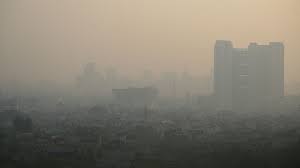Bismillahirahmanirrahim
Assalammualaikum wbt.
Bio-fuel is a fuel that is produced through contemporary biological processes such as agriculture and anaerobic digestion. Bio-fuels can be derived directly from the plants or indirectly from agriculture, commercial, domestic or industrial wastes. Renewable bio-fuels generally involve contemporary carbon fixation such as those occur in plants or micro algae through process of photosynthesis.
Assalammualaikum wbt.
Bio-fuel is a fuel that is produced through contemporary biological processes such as agriculture and anaerobic digestion. Bio-fuels can be derived directly from the plants or indirectly from agriculture, commercial, domestic or industrial wastes. Renewable bio-fuels generally involve contemporary carbon fixation such as those occur in plants or micro algae through process of photosynthesis.
ADVANTAGES OF
Renewable:
Most of the fossil fuels will expire and
end up in smoke soon. Since most of the sources like soy bean, corn, waste from
crops and plant are renewable and quite possible to run out any time soon,
making the use of bio-fuels efficient in nature. These crops or plants can be
replanted again and again.
Lower Levels of Pollution:

Since bio-fuels are renewable energy
sources, they cause less pollution to our Earth. Bio-fuels release lower levels
of carbon dioxide and other emissions when burnt compared to other fossil fuels
like coal or gas.
Reduce Greenhouse Gases:

Fossil fuels produce large amount of greenhouse
gases like carbon dioxide in the atmosphere when they were burnt. These greenhouse
gases will trap the sunlight and increase the temperature of our Earth and
causes global warming. People around the world use bio-fuels to reduce the
impact of greenhouse gases. Studies show that bio-fuels reduces greenhouse gases
up to 65%
DISADVANTAGES OF BIO-FUEL
Amount of Water Used:
Large quantities of water are required to
irrigate the bio-fuel crops and if it not managed wisely, it may effect on local
and regional water resources. In order to produce plants based ethanol to meet
local demand for bio-fuel; large quantities of water are consumed to put
sustainable pressure on local water resources
Shortage of Food:

Bio-fuels are extracted from plants and
crops that have high levels of sugar in them. Most of these crops are also used
as food crops. Bio-fuel might only need waste material from plants to be used as
raw material but they still require food crops which will take up agriculture
space from other crops. This will create many problems and will definitely put
pressure on the current growth of crops. People worried that the growing use of bio-fuels may just mean a rise in food prices as well
Industrial Pollution:
The carbon footprint
of bio-fuels is less than the traditional forms of fuel when burnt. However, the
process with which they are produced makes up for that. Production is largely
dependent on lots of water and oil. Large scale industries meant for churning
out bio-fuel are known to emit large amounts of emissions and cause small scale
water pollution as well. Unless more efficient means of production are put into
place, the overall carbon emission does not get a very big dent in it. Bio-fuel might reduce the pollution but it’s still polluting our Earth so it is not as
green as we thought.
DIFFERENT TYPES OF BIO-FUEL
Bio-ethanol:

produced from plants such as sugar cane or corn. Bio-ethanol
is used as alternative to gasoline, for thermal combustion power generation and
as feed stock in the chemical industry.
Bio-fuel:

produced from the fatty acids found in vegetable oils. Bio-fuel
is used for railway usage, aircraft use, as heating oil and cleaning oil spills
Bio-gas:

produced from the fermentation of organic matter. Bio-gas is
used as cooking fuel, lighting fuel and automobile fuel (for short journeys).
Don't be fuelish! Use bio-fuel.
Feel free to drop your questions in the comment section below. I'll try my best to answer it inshallah. Thanks for visiting this blog. Don't forget to share it okay? Articles will be posted every four days. Stay up-to-date with it. This is the last article for May, see you next time in June! Ciao!


Bio fuel .. still waiting to make it real to our oil gas industry. So true its reduce pollution but how about the sources. Is it enough to supply to the industry? Anyway, this article good for reference for student.. good job.
ReplyDeleteHere in Malaysia,we use palm oil as the main source of bio-fuel. It's produced domestically which helps our country to reduce dependency of oil import. And ya it's more than enough for the industries.
Deletedulu macam pernah belajar pasal ni, tapi sekarang ingat tak ingat huhu thnkyou for this article
ReplyDeleteYour welcome,Shafyqah.
DeleteI've been with Bio-fuel article before and know some WTE articles but not details.
ReplyDeleteGlad you like it.
DeleteVery informative I really enjoyed reading it. Thank you for sharing Soo
ReplyDeleteYour welcome:)
Deletevery true and very good, thanks for sharing!
ReplyDeleteMy pleasure,Nadia
DeleteHahahah...biofuel is one of the famous fyp title for chemical engineering student like me...so sad..there are a lot of studies regarding this in Malaysia..but stil they didn't make it for industrial scale. I always wonder why...
ReplyDeleteGlad you like it,Alia
Deletewah. i learn something today. thanks :)
ReplyDeleteMy pleasure,Rafzan
DeleteInfo yg menarik..thanks for sharing.
ReplyDeleteYour welcome,Hanny
DeleteKat Malaysia ni camana nak implement cara camni? Teknologi dah ada. Tunggu lah beberapa tahun lagi kot. Kan?
ReplyDeleteStill in planning phase. Yerp,maybe in few years.
DeleteIt's have advantage and disadvantage.... but nothing is possible... must fine an others solution for its. If not today, hope by tomorrow.
ReplyDeleteThat's right.
Delete